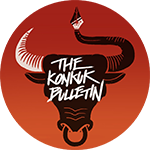Liquor is universal and has existed for a long time. and it has existed since the past. In Korea, when drinking with one's elder, one must turn one's head to empty the glass and use both hands when receiving and pouring alcohol. This can be seen as a cultural feature of Korea that values courtesy and respect the elders. In this Global Life, let’s take a look about the drinking culture of countries around the world and learn about their cultures!
What is the unique or traditional liquor of Germany/Porland?
Leonie Wittchen / Department of Living Design / Germany: Obviously the drink we are famous for is beer. There are about 1,350 breweries and 5,000-6,000 sorts of beer in Germany. We can enjoy different types of beer every day. We also have lots of wineries in South and love hard liquor too. Do you know Schnapps? Schnapps is one of hard liquors in Germany. It is clear alcohol with 42-55 vol percent, coming in different flavors like plum, peach, and pear etc.
Paulina Flazińska / Department of Business Administration / Poland: I want to say the most popular Polish drink is Wódka (Vodka). It is really strong and contains around 50% alcohol or even more sometimes. It is also clear liquor compared to wine, beers, or other fermented alcohol so Wódka is easy to get over the hangover. And it is generally famous in Slavic countries like Finland, Iceland and Russia. Miód pitny (Mead) is a beverage made of fermented honey, sometimes some other fruits like berries, spices, and grains. It contains 5.5 percent to 20 percent of alcohol.
Why is it traditional or unique?
Leonie: Beer is really traditional because it came with the Germanic tribes in 800 B.C. Also, in monasteries, monks drank it while fasting. Back then it was safer than water in purity. Now, Germany has “Reinheitsgebot”, which is purity requirements fixed by German law! It permits only water, hops, and malt in liquor and it is top-fermented. There is a German saying; “There’s hops and malt lost.” It means it in a hopeless situation, when changing a person or something is hopeless or something is broken and will not work again.
Paulina: Wódka is first discovered in Poland around 8 century, and it was firstly introduced in literature named Akta Grodzkie in 15 century. It is really long time ago. Also, it is like Slavic culture’s alcohol because you can find Wódka in many east Europe’s countries. In addition, Mead is very traditional because it is produced and consumed since Medieval times.
What food do people of your country enjoy with it?
Leonie: We drink with everything. Actually, it doesn’t matter who you are with, when you are, where you are and when drinking haha. Probably it is the best for typical traditional German food like Maultaschen (Swabian pockets), Spätzle (special noodles), and Kässpätzle (Special Cheese Noddles).
Paulina: It differs from people to people, but Polish usually enjoy liquor with soups like chicken soup called Rosół. It’s really warm and rich actually when you eat it and drink alcohol you do not feel alcohol that much. We believe chicken soup relives the stomach and it actually feels cozy.
When and how do German/Poland usually drink?
Leonie: In Germany, we are legally allowed to drink beer and wine when we pass to 16, and 18 for hard liquor. There is a certain difference between city and village people. Village people often start drinking earlier, but it´s illegal if you parents are not watching over you. I’m from village so I started to drink at end of 14 or beginning of 15. It’s kind of custom. Beer, especially at the Octoberfest in Munich, seven million liters is drunk in two weeks. The average German drinks about 124 liters per year. It’s quite a big statistic, and through this we drink a lot.
Paulina: There is a special liquor or a warm drink that we especially enjoyed around Christmas and wintertime. It is called mulled wine, and it is hot alcohol with spices such as cinnamon, oranges, raisins, and anise. When we drink mulled wine, it makes us feel warm and better from the cold outside. When it comes to Wódka, we usually drink it at weddings, and house parties. However, we do not drink Wódka in restaurants because we think a person who drinks Wódka in public alcoholic and we are kind of embarrassed to drink Wódka among people. So we mostly drink Wódka at family gatherings. In the restaurant, we normally drink beer or wine.
Is there any special drinking culture in Germany/Porland? Any etiquette?
Leonie: When we drink, we say “Prost or Zum Wohl” as a drink toast. Also, we drink beer out of beer mugs. German sing a drinking songs at parties such as the Octoberfest and carnival. The song name “Ein Prosit (2017)” is the most famous drinking song in Germany. We sometimes do “Schunkeln” which is the movement linking arms and swaying left to right. It’s quite fun and exciting.
Paulina: We always say“Na zdrowie!”which is similar to cheers in English, or make a toast for somebody’s love, health, and well-being. People also take a shot with somebody crossing arms to make a friendship, even in a romantic way. Some people in more conservative families do not allow women to pour alcohol.
Is there any alcohol you would like to recommend?
Leonie: For beer, I would like to recommend Beck’s and Krombacher’s beer. These are the best-selling brands in Germany. Though I recommend Köllsch as it is only allowed to be brewed and sold in Colongne and people in this certain city feel proud of this beer. It is not allowed be allowed to sell in other cities. I want to tell something interesting. We have the combination of red wine and coke, and we call it “Korea” in Germany. I do not know the reason why it is called “Korea” but the taste of is really amazing.
Is there any particular food for a hangover in Poland?
Paulina: There are some people who believe it’s the best way to overcome hangover with another shot the next day! We usually eat sour soup like Żurek (Polish sour rye soup), and Ogórkowa (cucumber soup). Also, we drink water with lemon and honey.
Is there any particular food against a hangover in Germany?
Leonie: We believe that eating fatty and oily food before and while drinking is good for against a hangover. Because we think it helps to get drunk slower. So we eat something greasy like pizza a lot. Also, for village people, there are no busses running at night, so they have to walk home. Often, walking from one village to another takes between 30 minutes and 2 hours so you are sober when you arrive home. I mean the fresh air of the village is also a good thing against a hangover haha. In addition, we take whole-grain buns with cheese and a glass of milk in the morning to relieve a hangover.
Could you introduce any special games or toasts in Germany?
Leonie: I want to introduce a toast which we do a lot while drinking. We say “Hoch der Kolba nei der Zenga, morga müssmer Wasser trenka, übermorga: Moscht. Proscht!” It means pretty much: Lift the glass, tomorrow we will have to drink water, the day after: Cider, Cheers! It’s quite awkward in English but it makes rhyme in German. Also, play Beer pong, Flanky Ball, and ring of fire for drinking game. We make some special drinking tool called “Trichtern (Funneling)” for the birthday person.

